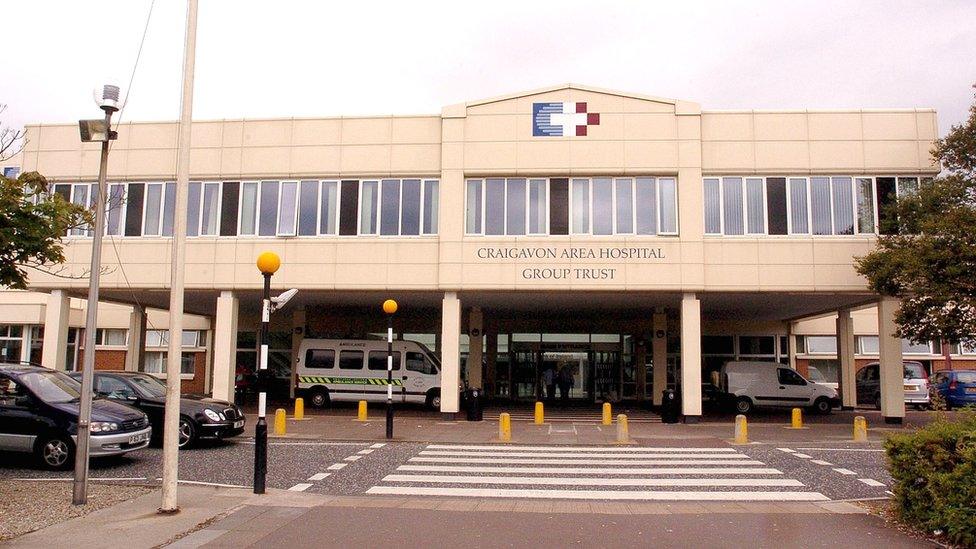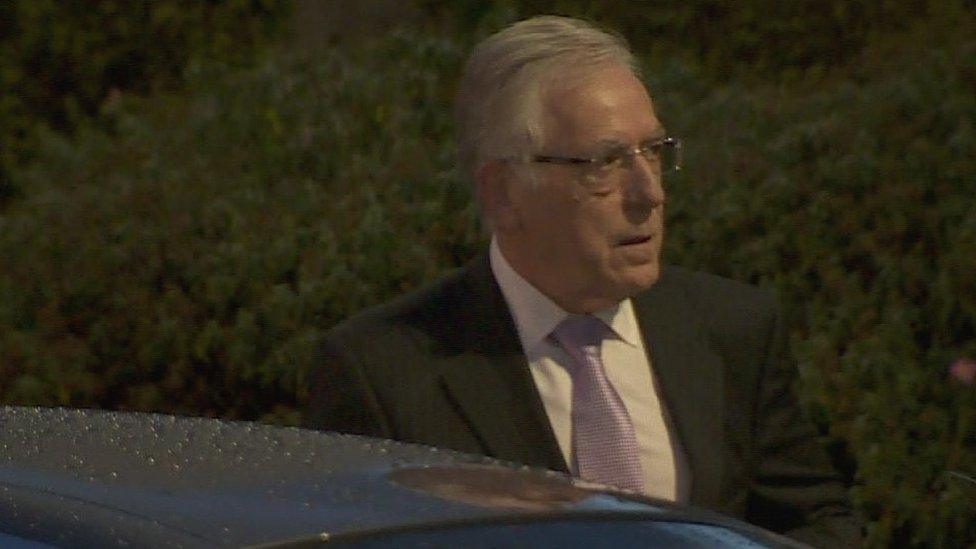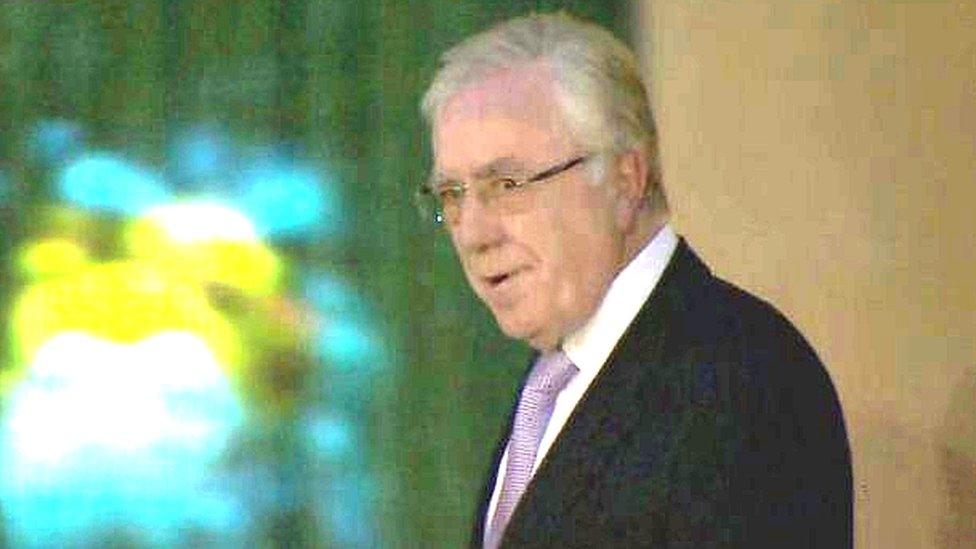Urology Inquiry: Consultant Aidan O'Brien 'dismissed concerns'
- Published

The inquiry, established in 2021, is examining the trust's handling of urology services prior to May 2020
A consultant urologist who trained at the Southern Health Trust has said a consultant at the centre of an inquiry was dismissive of his concerns and he wasn't listened to.
Chris Hagan, who is now also executive medical director of Belfast Trust, was giving evidence at the Urology Inquiry.
The inquiry, established in 2021, is examining the trust's handling of urology services prior to May 2020.
Former consultant Aidan O'Brien's work is at the centre of the hearing.
In his first appearance before the inquiry, Mr Hagan said when reflecting on the six months he spent in Craigavon Area Hospital that there was a number of situations that arose that caused him to feel concerned about some of the practices of Mr O'Brien.
The inquiry heard that Mr Hagan raised issues with Mr O'Brien and another consultant Mr Young about Mr O'Brien during his six-month surgical rotation, which he said would have been a brave thing to do at the time.
"There wasn't the structure that there is now, absolutely not," said Mr Hagan.
"I think you have to remember I was a trainee then.
"I think also trainees may not have been as aware of those systems as well because part of the thing about training is learning about those types of things. I think we spend a lot of time training trainees about how to raise concerns now that we didn't do 23 years ago."

Mr Hagan was in the urology department at Craigavon Area Hospital for six months
The inquiry heard that Mr Hagan had several concerns into Mr O'Brien's practices at Craigavon Area Hospital.
Mr Hagan said he questioned practices such as patients being admitted to the ward for several days for prolonged IV fluids and antibiotics. He said he was told that this was part of Mr O'Brien's regime.
Mr Hagan said it was not clear to him the reason for this approach or the evidence base for the treatment.
"I think you need to take us back to the context of you're a trainee, and you're working in a unit where there's established consultants," he said.
"There's a practice going on that you don't quite understand but you're still a junior trainee.
"Consultants who are managing the ward and the nurses who are managing the ward seem to think this is OK. You've spoken to the consultants and said, 'I don't quite understand this' and they have given some form of explanation or shrug their shoulders."

Mr Hagan said as a surgical trainee he felt "anxious" about challenging Mr O'Brien
Chris Hagan said as a trainee it was a "brave thing" to do to raise a concern directly with a consultant and his colleague.
In another case, Mr Hagan said he questioned why Mr O'Brien removed the bladder of a young woman who he understood was having recurrent urinary tract infections.
The inquiry heard that the operation, which Mr Hagan called "radical and life changing", is usually only performed as a treatment for bladder cancer and said he could find "no evidence base in the literature for this".
He said as a second-year surgical trainee, he felt "inevitably anxious about challenging an experienced consultant".
He said he had expressed his view and "Mr O'Brien had provided an explanation that was hard to dispute at the time".
He said that "looking back on this now with 17 years' experience as a consultant urological cancer surgeon, I can see no justification for the operation".
Mr Hagan said it is highly unusual to remove the bladder in young people and said he felt and still feels "that to put somebody through a major operation for what is a common condition in young women was very unusual".
Patient safety
Mr Hagan told the inquiry about other concerns he had in relation to patient safety.
He raised concerns about Mr O'Brien's treatment of ureteral stones - kidney stones in one of the ureters that connect the kidney to the bladder.
He said Mr O'Brien's approach was very different to his experience and that "his preference was to intervene surgically at a very early stage".
Mr Hagan said he challenged him in relation to this approach with discussing patient management, as I felt that suitable stones should be allowed to pass naturally because intervention carries risk.
He said he found Mr O'Brien "dismissive of me when I raised concerns" and that Mr O'Brien was clear it was an appropriate course of treatment.
Mr Hagan disagreed again with the process Mr O'Brien advised him to use in surgery when destructing the stones.
Mr Hagan said he felt there were "real safety risks" but he did as he was instructed and there ended up being a complication which required the patient to have an open surgical repair of his ureter.
"I was very distressed by this complication, and I felt very much to blame for it, even though I had carried out the instructions of the supervising consultant."
Mr Hagan said, with hindsight, the direction he received from the supervising consultant "was not appropriate in this situation" and that it was an "entirely avoidable complication".
The inquiry heard that Mr Young did not recall Mr Hagan raising these concerns.
The inquiry continues.
Related topics
- Published20 April 2023

- Published10 August 2023

- Published19 April 2023
